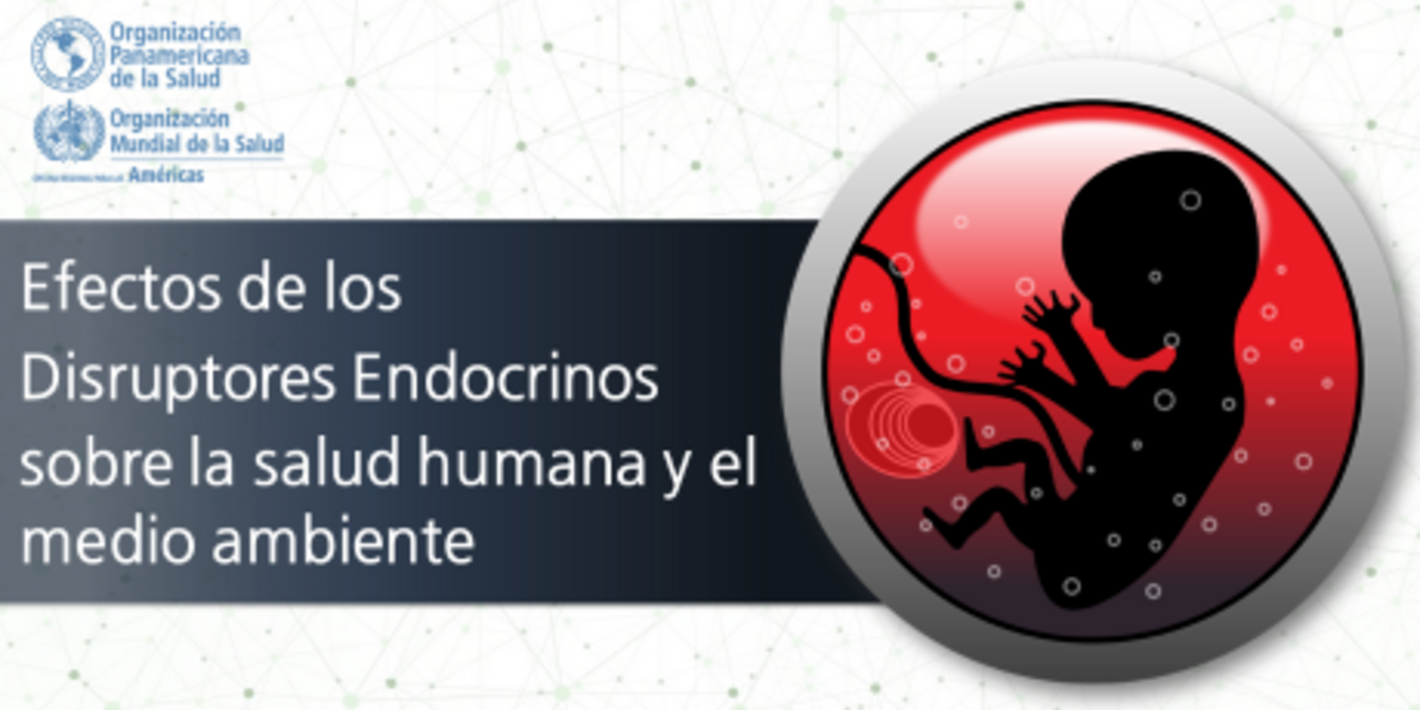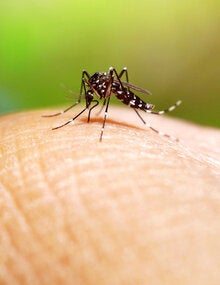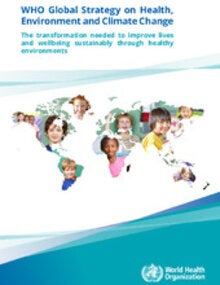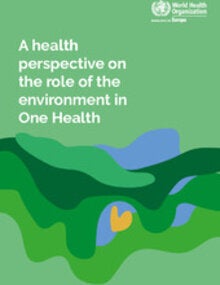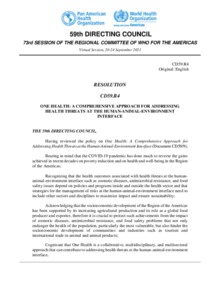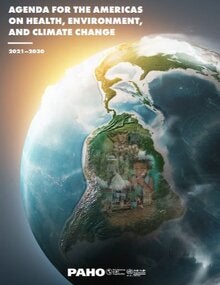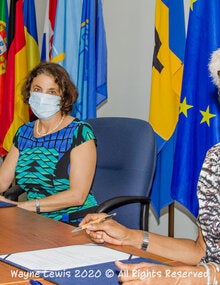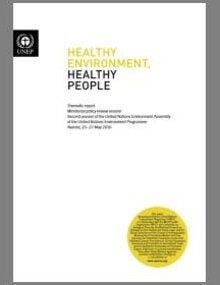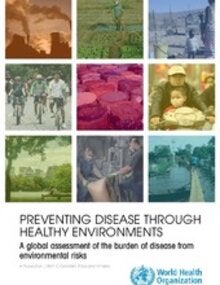ONE HEALTH - Action Track 6
Integrating the environment into One Health
Action Track 6 “Integrating the environment into One Health” focuses on how the environment may affect the living conditions of populations and the different productive, economic and social activities.
Recent global changes in social-ecological systems have created an environment that favors the emergence and spillover of pathogens. Environmental determinants of health, including unsafe water, sanitation, and hygiene services, climate change, as well as air pollution and mismanagement of chemicals such as pesticides and mercury, adversely affect the health of humans, animals, and plants. Additionally, microplastics, chlorinated derivatives, pesticides and nitrogen derivatives act as environmental stressors and their accumulation throughout the food chain affects and endangers human health. Access to safely managed water and sanitation is a preventive barrier that keeps humans from contracting certain infectious diseases, to the extent that people can practice frequent hand washing and eliminate the practice of open defecation.
The environment is a crucial sector in the One Health triad which includes human and animal health. Therefore a coordinated, multipronged systems approach focused on understanding the linkages and interactions is necessary for the advancement of One Health.
Technical cooperation and country experiences
European Union/CARIFORUM Caribbean Project: Strengthening Climate Resilient Health Systems in the Caribbean
Improved surveillance capacity of/by professionals working in the health sector and health-determining sectors, including through the development of climate-informed integrated systems and protocols to monitor/forecast selected environmental determinants of health (e.g. heat, water and sanitation) as well as health diseases (zoonosis, vector borne and foodborne diseases):
- Development of plans/protocols/sub-regional manuals to address the leading climate linked environmental determinants of health in the Caribbean through the design and implementation of at least two (2) integrated climate resilient water and/or sanitation safety/security plans and protocols
Strong, effective Climate Change leadership among government officials, civil society, communities, environmental health professionals, and private sector through implementation of successful approaches, such as One Health:
- The UWI Fellows Leadership Program is a part time, blended learning nature of the fellowship program allowed the fellows to participate in a 4-day online introductory kick-off workshop during which, the fellows are taught the relationship between climate change and health, using a socio-ecological perspective and One Health lens to see the complex interactions of human, animal and environmental health on human population health. This allows the fellows to form a sense of connection to the program and other fellows and became aware of the support and resources available in the fellowship community of practice.
- An interdisciplinary cadre of 15 climate change fellows from across the region trained in Climate Change, One Health and Leadership, who can mutually support each other’s local leadership work, are aware of leadership roles /needs and are connected with critical agencies working on Climate Change across the Caribbean region.
Virtual Trainings
Good practices
- Improve the performance of environmental public health programs.
- Strengthen environmental public health surveillance.
- Foster an environmentally responsible and resilient health sector.
- Promote environmentally healthy and resilient communities.



